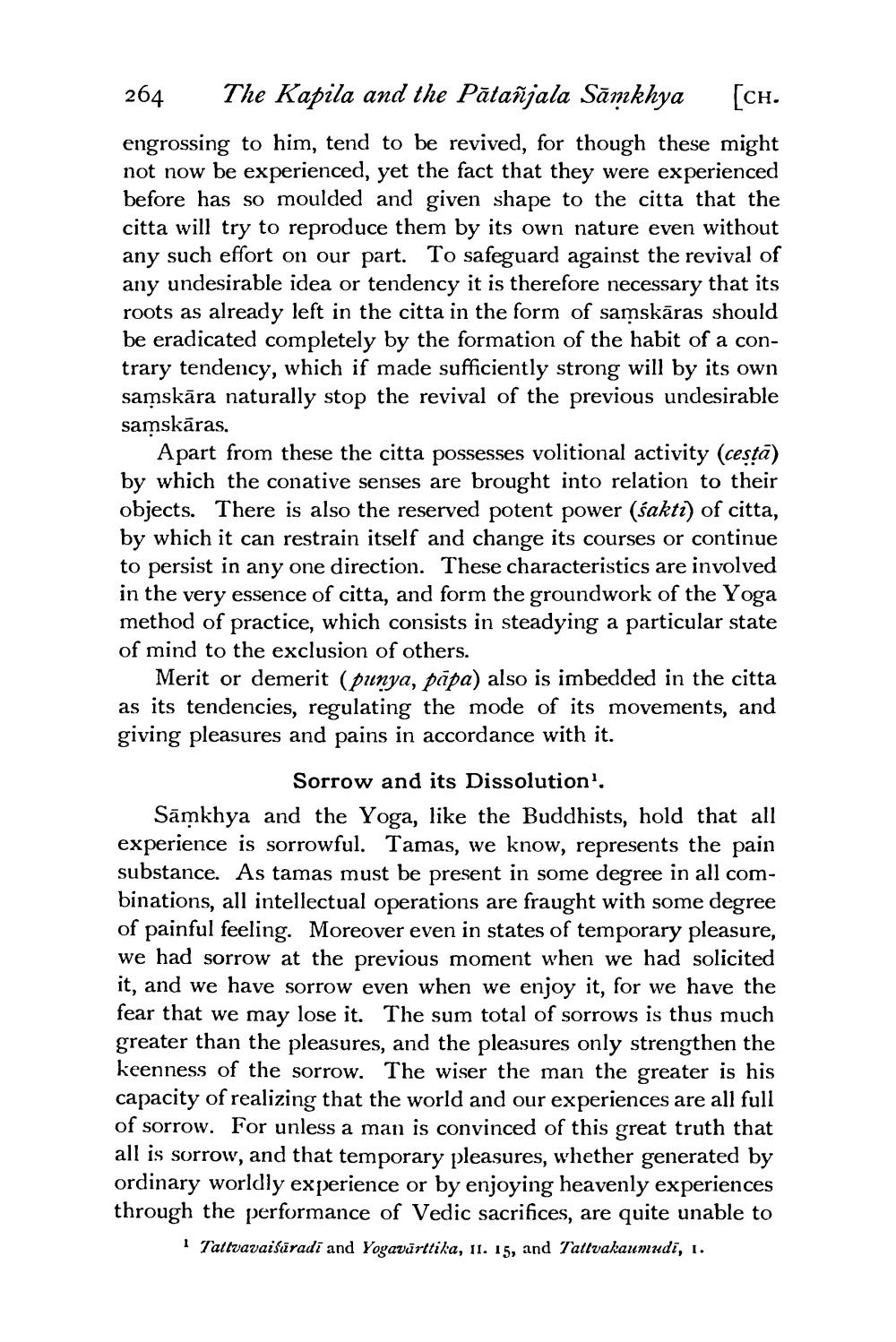________________
264 The Kapila and the Pātañjala Sāmkhya [CH. engrossing to him, tend to be revived, for though these might not now be experienced, yet the fact that they were experienced before has so moulded and given shape to the citta that the citta will try to reproduce them by its own nature even without any such effort on our part. To safeguard against the revival of any undesirable idea or tendency it is therefore necessary that its roots as already left in the citta in the form of samskāras should be eradicated completely by the formation of the habit of a contrary tendency, which if made sufficiently strong will by its own samskāra naturally stop the revival of the previous undesirable samskāras.
Apart from these the citta possesses volitional activity (cesta) by which the conative senses are brought into relation to their objects. There is also the reserved potent power (sakti) of citta, by which it can restrain itself and change its courses or continue to persist in any one direction. These characteristics are involved in the very essence of citta, and form the groundwork of the Yoga method of practice, which consists in steadying a particular state of mind to the exclusion of others.
Merit or demerit (punya, pāpa) also is imbedded in the citta as its tendencies, regulating the mode of its movements, and giving pleasures and pains in accordance with it.
Sorrow and its Dissolution'. Sāmkhya and the Yoga, like the Buddhists, hold that all experience is sorrowful. Tamas, we know, represents the pain substance. As tamas must be present in some degree in all combinations, all intellectual operations are fraught with some degree of painful feeling. Moreover even in states of temporary pleasure, we had sorrow at the previous moment when we had solicited it, and we have sorrow even when we enjoy it, for we have the fear that we may lose it. The sum total of sorrows is thus much greater than the pleasures, and the pleasures only strengthen the keenness of the sorrow. The wiser the man the greater is his capacity of realizing that the world and our experiences are all full of sorrow. For unless a man is convinced of this great truth that all is sorrow, and that temporary pleasures, whether generated by ordinary worldly experience or by enjoying heavenly experiences through the performance of Vedic sacrifices, are quite unable to
Tattvavaisāradi and Yogavārttika, 11. 15, and Tattvakaumudi, 1.




